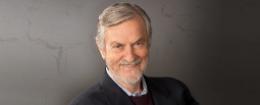Pema Chödrön also explains how our various and fleeting attempts to deny or “fix” our pain actually serve to distance us from our most tender, open hearts and close us off to our true nature. Rather than turning away, our task, she says, is to embrace the difficulties of our lives.
“It is so basic in us to feel that things should go well for us, and that if we start to feel depressed, lonely, or inadequate, there’s been some kind of mistake or we’ve lost it," she wrote in Lion's Roar. "In reality, when you feel depressed, lonely, betrayed, or any unwanted feelings, this is an important moment on the spiritual path. This is where real transformation can take place," she said.
Giving Up Who You Think You Are
Connecting consciously with ourselves and others requires us to recognize and drop the stories that we use to define ourselves. If we are not trapped by who we’ve been conditioned to think we are, if we don’t confuse the circumstances of our lives with our true nature, then we can then show up not as a function or a role, but as what spiritual teacher Eckhart Tolle, author of A New Earth: Awakening to Your Life's Purpose, describes as “the field of conscious Presence.”
“Give up defining yourself—to yourself or to others. You won’t die. You will come to life. And don’t be concerned with how others define you. When they define you, they are limiting themselves, so it’s their problem,” said Eckhart.
Spiritual teacher Adyashanti also points out how susceptible those on a spiritual path are to building stories, and the value to others when we drop our ideas of who we think we are.
“It is in the absolute surrender of all conditions and requirements that liberation is discovered to be who and what you are. Then the love and wisdom that flows out of you has a liberating effect on others. The biggest challenge for most spiritual seekers is to surrender their self-importance, and see the emptiness of their own personal story. It is your personal story that you need to awaken from in order to be free,” he said.
Opening Up On the Road to Intimacy
Intimate relationships can provide very fertile ground for recovering our wholeness—especially when the open heart that comes with falling in love begins to close down. It is when our partners want something from us that we feel we don’t want or have to give that it may be time to stay and focus on our own hearts, according to Harville Hendrix, cocreator, with Helen LaKelly Hunt, of Imago Relationship Therapy.
“When we understand that we have chosen our partners to heal certain painful experiences, and that the healing of those experiences is the key to the end of longing, we have taken the first step on the journey to real love,” said Harville.
In The Seat of the Soul, author and teacher Gary Zukav defines that journey as a spiritual partnership between equals for the purpose of spiritual growth, as opposed to the perpetuation of personalities. “You begin to see that what is necessary to the health of your partnership is identical with what is necessary to your own spiritual growth, and that each of you hold the pieces that the other is missing….It requires the heart, not the intellect.”
Showing Up as Our Professional Selves
Although the spiritual quest for wholeheartedness may seem to be in conflict with the demands of the workplace, there are practices that can help us stay present with ourselves, our responsibilities, and our coworkers. Wellness expert and entrepreneur Bizzie Gold urges us to stop searching for perfect work-life balance by assuming it doesn’t exist and, instead, celebrate the moments that do. And even if our day-to-day doesn’t align well with our innermost desires, there are opportunities for self-discovery and transformation if, suggests nondual spiritual teacher Amoda Maa, we’re willing to stop looking for security, status, fortune, or fame.
“It’s not about bringing your spiritual qualities to work; you don’t have to be calm, loving, or even compassionate when boundaries are violated, you’re treated unfairly, or you’re bullied or ignored. It’s also not about having a job that fits in with your spiritual ideologies," she said. "It’s really not about the external form, which is likely to change over time. It’s about your inner state of consciousness. What you do does not matter, but how you do it does.”
Finding Openheartedness In Dark Times
We face the opportunity to proceed toward wholeheartedness every day, whether our days are punctuated with mundane challenges or profound. Even in our moment of darkest grief, wrote Viktor Frankl in Man’s Search for Meaning, about his spiritual survival as a Nazi concentration camp prisoner, there is a “choice to respond with malice, aggression, and blame, or reach deeper into your being for compassion, love, and beauty."








